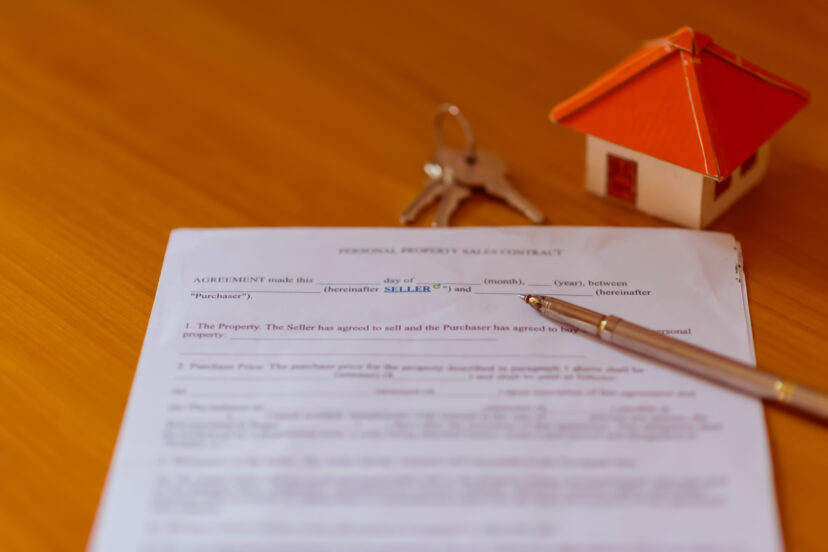Legal Aspects of Contracts
Have you ever dreamed of owning your own home but struggled with traditional mortgage requirements? You’re not alone. Many aspiring homeowners are discovering rent-to-own contracts as an alternative path to achieving their dreams. These innovative agreements, also known as lease-option or lease-purchase arrangements, are opening doors for countless Americans—but the legal aspects of contracts come with their own set of complexities that deserve careful attention.
Tap Search… to find the perfect property that fits your needs and budget.
Understanding Rent-to-Own Basics
Think of a rent-to-own contract as a hybrid between renting and buying. It’s like test-driving a car before making the big purchase, but with much higher stakes. These agreements typically begin with a standard lease period of one to three years, during which you live in the property while deciding if it’s truly the right fit for your future.
What makes these contracts unique is their structure. When you enter a rent-to-own agreement, you’re not just paying rent—you’re investing in your future. Here’s how it typically works:
First, you’ll pay what’s called an option fee—think of it as reserving your right to buy the home later. This upfront payment, while usually non-refundable, demonstrates your serious intention to purchase and secures your future buying rights.
Then comes the monthly rent, but here’s where it gets interesting: a portion of your rent payments may be designated as “rent credits.” These credits accumulate over time, like a savings account specifically for your future home purchase. It’s a brilliant way to build equity while you’re still renting.
Diving Deep: Legal Aspects of Contracts for RTO
Let’s explore the crucial legal components that make these agreements work. Understanding these elements isn’t just about legal compliance—it’s about protecting your interests and ensuring a smooth path to homeownership.
The Foundation: Your Lease Agreement
The lease agreement serves as the backbone of your rent-to-own contract. Think of it as your roadmap for the entire journey. This document outlines everything from your monthly rent payments to your responsibilities as a tenant. It’s essential to pay attention to details like:
- The exact duration of your lease term
- Monthly rent amount and payment schedule
- Security deposit requirements
- Maintenance and repair responsibilities
- Conditions for lease renewal or termination
The Power of the Option Fee
The option fee is your ticket to future homeownership. This payment, typically ranging from 1% to 5% of the purchase price, locks in your right to buy the property. While it might seem like a significant upfront cost, consider it an investment in your future—albeit one that requires careful consideration since it’s usually non-refundable.
Understanding Rent Credits: Building Equity While You Rent
One of the most attractive features of rent-to-own contracts is the rent credit system. A portion of your monthly rent—often 15% to 25%—gets set aside as credit toward your future home purchase. It’s crucial to have these terms clearly defined in your contract:
- The exact percentage or amount of rent that converts to credits
- How these credits will be applied to the purchase price
- What happens to these credits if you decide not to buy
Locking in Your Future: The Purchase Price Agreement
Your contract should clearly state the agreed-upon purchase price for the property. This price is typically fixed when you sign the contract, protecting you from market fluctuations. It’s like having a crystal ball that tells you exactly what you’ll need to pay years down the road.
Navigating the Legal Landscape: Key Considerations
Property Maintenance and Repairs: Who’s Responsible?
Unlike traditional rentals, rent-to-own agreements often blur the lines between tenant and owner responsibilities. Your contract should explicitly outline:
- Regular maintenance duties
- Major repair responsibilities
- Cost-sharing arrangements for improvements
- Emergency repair procedures
Insurance Requirements: Protecting Your Investment
Both parties need proper insurance coverage. As a tenant-buyer, you’ll likely need renter’s insurance to protect your belongings, while the property owner maintains the structure insurance. Your contract should clearly specify:
- Required insurance types and coverage amounts
- Who’s responsible for which policies
- How claims should be handled
- Consequences of letting insurance lapse
Default and Termination: Understanding the Risks
Life doesn’t always go as planned, which is why your contract needs clear provisions for what happens if things go wrong. Key areas to address include:
- Late payment consequences
- Default conditions and remedies
- Termination procedures
- Rights and obligations upon contract end
Common Legal Challenges and How to Avoid Them
Ambiguity: The Enemy of Good Contracts
Vague contract terms are like ticking time bombs—they can explode into disputes when you least expect it. To avoid this:
- Ensure all terms are clearly defined
- Get everything in writing
- Avoid verbal agreements or modifications
- Have a legal professional review the contract
Market Fluctuations: Preparing for Change
Property values can change significantly during your lease period. While your purchase price is typically locked in, understanding market dynamics helps you make informed decisions about exercising your purchase option.
Property Condition Disputes
Disagreements about property condition are common in rent-to-own situations. Protect yourself by:
- Conducting thorough initial inspections
- Documenting property condition regularly
- Maintaining detailed repair and maintenance records
- Understanding your rights regarding property improvements
Protecting Your Interests: Legal Safeguards
State-Specific Protections
Different states offer varying levels of protection for rent-to-own participants. Some states classify these agreements as installment sales contracts, providing additional consumer protections. Research your state’s specific laws or consult with a local real estate attorney to understand your rights.
The Value of Legal Counsel
While it might be tempting to handle everything yourself, working with a qualified real estate attorney can save you money and headaches in the long run. Legal professionals can:
- Review and explain contract terms
- Identify potential issues before they become problems
- Ensure compliance with state and local laws
- Protect your interests throughout the process
Making Your Decision: Final Thoughts
Rent-to-own contracts offer a unique opportunity to achieve homeownership, but they require careful consideration of the legal aspects involved. By understanding these key components and seeking appropriate legal guidance, you can navigate this path to homeownership with confidence.
Remember, while the legal aspects of contracts might seem overwhelming, they exist to protect both parties and create a clear framework for success. Whether you’re a potential tenant-buyer or a property owner, taking the time to understand and properly structure these agreements is crucial for a positive outcome.
As you consider entering a rent-to-own agreement, remember that knowledge is power. Take the time to understand every aspect of your contract, seek professional legal advice when needed, and make informed decisions about your future homeownership journey. With careful attention to the legal details, you can turn your dream of homeownership into reality through a well-structured rent-to-own agreement.





